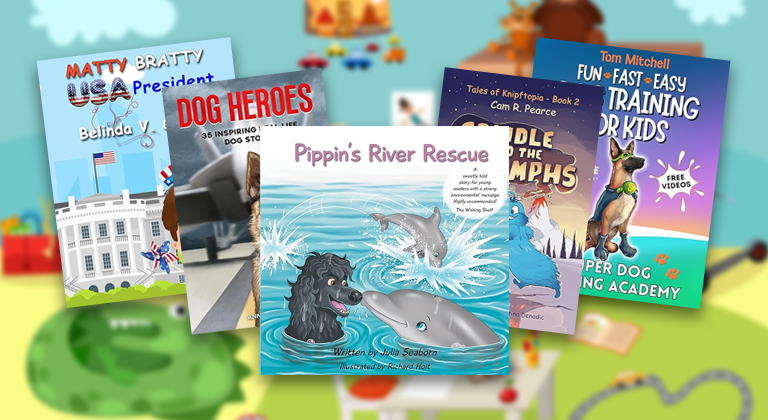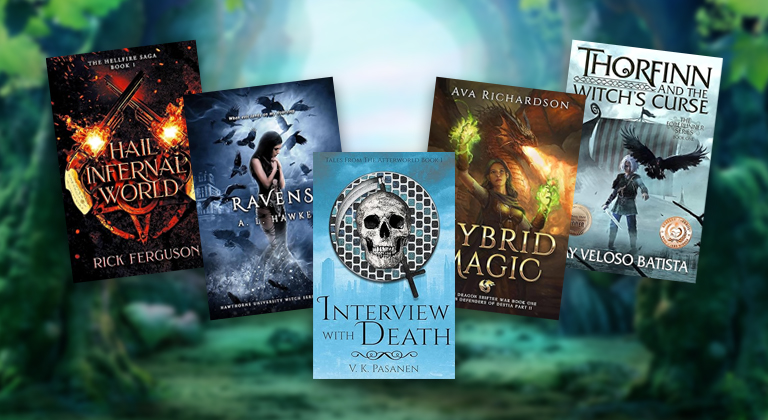Discover a Fresh Perspective with the POV Challenge
This week’s podcast with Courtney Brandt explores the intricacies of writing in first and third person perspectives, which is an excellent reference to listen to before (or after) reading this blog. In many cases, whether due to genre norms or story requirements, one perspective is more suited than another for a particular story, but there are also plenty of occasions where either POV could work (although the results would likely be two very different versions of the same tale.) Yet despite this, many authors favor one POV over another, even when the alternative may be a better fit.
Both perspectives have their unique strengths, which is why experimenting with them can be an incredibly valuable exercise. By switching things up, authors can gain a fresh perspective on their plot and characters, which in turn may result in a their ability to write a much stronger and engaging story.
But don’t worry, you don’t have to dive into writing a full-fledged novel from an unfamiliar perspective. Ginger’s POV Challenge offers a more manageable approach, allowing you to try out different perspectives on a smaller scale and see how it fits with your writing style and story.
We’ve already made some headway into 2023, but it’s not to late to set yourself some goals for the year ahead. One challenge I’m making is to examine my writing a little more critically with something I call the “First-Person POV Challenge.” Are you game?
It’s been said many times before, but it’s always worth repeating: Writing is a craft, not an art.
Just like a carpenter learns different techniques to accomplish similar things – you can make a 90 degree joint with either a Butt Joint or a Miter Joint, for example – writers can also use different tools and methods to tell the same stories in different ways.
You can tell a story in past tense, or present, for example – or write in first person point-of-view, or third-person. The options are practically limitless, and often the only reason writers choose to write in one particular style is because it’s the technique they’ve become most comfortable with.
But becoming a better craftsman often requires stepping outside your comfort zone and experimenting with techniques that you might not be familiar with. In addition to helping you learn new ways to tell your story, you can also use them to see if they end up making your end result better. That’s certainly been the case in something I call the “POV Challenge.”
This challenge is really simple. All you have to do is re-write a chapter or a scene from a different point-of-view. Instead of writing a scene in third person perspective, for example (“he did this,” and “she said that”) you should try writing it in first-person perspective, instead (“I did this,” and “I said that.”)
The exact same scene. The exact same characters. Even the dialogue should remain the same. You should just tell the story through the eyes of one individual character, rather than use the third-person ‘voice of God’ perspective, and then see how much of a difference it makes to the way you tell your story.
You might be surprised at the result!
Likewise, if you normally write in first person, try writing a scene in third-person, instead. It might feel really uncomfortable to step outside of your characters, but you might find a different perspective on things – literally – when you transfer to an external narrative.
This doesn’t mean that you should consider re-writing your entire story in the different point-of-view – but it can be really useful to look at a snapshot written like that. Just like everything comes into focus differently when you twist the barrel of your camera lens, you might find your story looks very different when you’re telling it through the eyes of a different narrator.
I’ve tried this exercise with a few writer friends of mine and I’ve often encountered similar reactions. Writers who’ve moved from the third person to the first person for a scene have repeatedly said they’re “uncomfortable with how comfortable it feels” and I think that’s because it naturally makes writing feel very intimate and natural.
I’ve written about how powerful first-person POV can be and that’s because it limits everything to what an individual character sees, hears, and knows – and experimenting with a scene written in first person often helps authors better understand what motivates the behavior of their characters – something that can get obfuscated when you’re writing in the omniscient third person.
Conversely, a couple of writer friends of mine have said that they enjoy the versatility of writing in the third person, as opposed to their preferred first-person POV. Both mentioned Alfred Hitchcock’s quote on cinematic suspense:
Let’s suppose that there is a bomb underneath this table between us. Nothing happens, and then all of a sudden, “Boom!” There is an explosion. The public is surprised, but prior to this surprise, it has seen an absolutely ordinary scene, of no special consequence. Now, let us take a suspense situation. The bomb is underneath the table and the public knows it, probably because they have seen the anarchist place it there. The public is aware the bomb is going to explode at one o’clock and there is a clock in the decor. The public can see that it is a quarter to one. In these conditions, the same innocuous conversation becomes fascinating because the public is participating in the scene. The audience is longing to warn the characters on the screen: “You shouldn’t be talking about such trivial matters. There is a bomb beneath you and it is about to explode!”
In the first case we have given the public fifteen seconds of surprise at the moment of the explosion. In the second we have provided them with fifteen minutes of suspense. The conclusion is that whenever possible the public must be informed. Except when the surprise is a twist, that is, when the unexpected ending is, in itself, the highlight of the story.”
Alfred Hitchcock
They mentioned how it’s practically impossible to craft that kind of suspenseful scene unless you use the third-person POV. You need the reader to know more than the characters, and writing in first-person makes that impossible.
Normally, the writers I’ve done this exercise with enjoy it – even if they subsequently write the rest of their manuscript in their preferred viewpoint. It’s a good mental exercise that can really help you get deeper into your story.
Some have gone on to use these experiments as ‘bonus chapters’ for their subscribers – something really tangible that rewards those readers who’ve trusted them with their email address.
But occasionally this exercise can change everything. It certainly did in my case. I wrote eight full-length novels in third-person perspective before I experimented with first person POV and I’ve never looked back. That’s certainly not to say it’s for everybody – but for me, writing in first person gave my stories the pep and focus they’d been lacking before.
So, if you haven’t already taken this challenge, I definitely recommend it as a way of committing to your self-publishing career and the goal of becoming a better writer. It’s fun, easy, and the results might surprise you.
If you do end up trying this challenge yourself, be sure to let us know about it! Leave a comment down below to share your experiences.












I wrote my first five books in third person from dual characters’ POV. Now I am writing the second book in a row in first person. I got the same feeling you did, it feels much more intimate, and I don’t think I’ll return to third person. I tried to write one chapter in third person that was supposed to be a series of journal entries, and it didn’t feel right. I had to rewrite it in the POV of the character writing the journal entries. She was witnessing a murder as a child, so I wanted to capture her confusion, angst, horror, fear etc.
Third person omniscient narrator is hardly used outside thrillers and such. In today’s contemporary romance those of us who use third person do it as ‘third person limited’ – it’s limited to the perspective of a single character (alternate chapters if dual pov), and you get just as deep into the character as in first pov. The language used, the feelings, the thoughts are all in that character’s perspective. There is no external narrator. You can change the ‘she’ or ‘he’ into ‘I’ without having to change anything else. Here’s an example from a novella I’m writing:
She didn’t need the cheap wine to draw courage. She was beyond that point. She needed it to blur the warmth that spread in her heart so she could focus just on the one that spread down her body. She needed it to fog the unnerving awareness that her attraction to him was far more than physical. She needed it to dim her need to hug him and not just rip his shirt open.
Change the ‘she’ into ‘I’, the ‘her’ into ‘me/my’ and the paragraph won’t change that’s because you’re already inside that character’s pov though it’s in third.